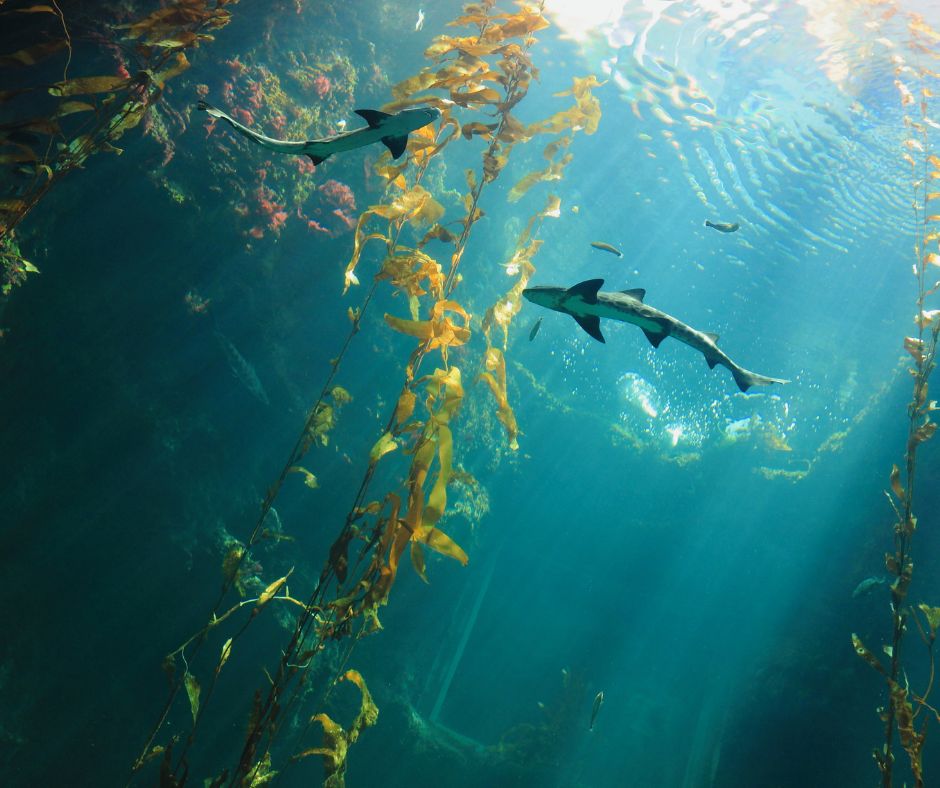Coming up: High-level UN meeting in Uzbekistan to find solutions for endangered migratory species and protect global biodiversity
- Member States of the United Nations Convention on the Conservation of Migratory Species of Wild Animals will meet in Samarkand, Uzbekistan, from 12 to 17 February 2024 to address issues of critical importance to the global biodiversity crisis.
- The most intense debate is expected to be on the controversial issue of deep-sea mining, where the International Seabed Authority, the UN body responsible for managing this activity, tries to discourage the CMS Parties from expressing concerns about the potential negative impacts of mining on migratory species, their habitat and prey.
- OceanCare contributes to the convention’s work areas, including marine pollution and the protection of whales as well as other marine species, and promotes the creation of protected habitats for marine mammals.
You don’t have to be a Lahille’s Bottlenose Dolphin, a Sand Tiger Shark, or a Peruvian Pelican to have high expectations of next week’s high-level UN conference. The 133 member states of the Convention on the Conservation of Migratory Species of Wild Animals (CMS) will gather in Samarkand, Uzbekistan, from 12 February to address issues of critical importance to the global biodiversity crisis. These include important proposals to add further animals to the already long CMS list of 180 species “facing a very high risk of extinction” and another one of 1,129 species “in need of international agreements for their conservation”. The new proposals form just one of the many items on the agenda.
Nicolas Entrup, OceanCare’s Director of International Relations, points out:
“The world is facing a triple planetary crisis: climate change, pollution and biodiversity loss. Marine species are among those severely threatened by human activities such as resource exploration and extraction, fishing, and shipping – as well as by pollution and climate change. At a time when many governments continue to cut budgets for multi-environmental agreements and conservation action plans, the importance of the work of CMS, as part of the United Nations Environment Programme, cannot be overstated.
“Beyond the important conservation efforts focused on endangered species, we also need a systematic focus on human-induced risks to natural habitats to prevent the acceleration of biodiversity loss. In addition to proposed decisions on marine noise pollution and ship strikes on endangered species, such as whale sharks, we expect controversial discussions on deep-sea mining in particular.
“We at OceanCare were astonished to learn that the Secretary-General of the International Seabed Authority has sent a letter to the CMS Secretariat in an apparent attempt to discredit the Convention’s concerns about the potentially harmful effects of deep-sea mining on migratory species. We urge governments to strongly reject this attempt to silence the relevant UN body with a mandate to protect migratory marine species and their habitats, including from powerful commercial interests pushing for intensive exploitation of the planet’s natural resources”.
At the last CMS meeting in 2020, West African governments expressed their strong commitment to develop an action plan for the protection of wild aquatic species, including marine mammals, sea turtles, crocodiles and sharks. OceanCare and the Benin Environment & Education Society (BEES), with the support of the Beninese and German governments, organised a series of online workshops assisting to develop this Action Plan.
Maximin Djondo, OceanCare’s Aquatic Wildlife Conservation Specialist for West Africa, points out:
“For many years, marine fishers in West Africa have effectively balanced the harvest of coastal fisheries with the conservation of biodiversity. However, fish stocks in the region have been depleted by offshore fishing fleets mostly from China and Europe.
“As a result, traditional fishermen in the area have been forced to adopt novel harvesting practices targeting aquatic species such as manatees, crocodiles, sea otters and sea turtles. Harvested for traditional medicine, fishing bait and human consumption, many of these species are already threatened with extinction.
“OceanCare, the Benin Environmental Education Society and their local partners are strongly advocating the involvement of local communities in addressing this issue”.
The international marine conservation organisation OceanCare, as a recognised partner organisation of CMS, has been actively involved in the development, promotion and advancement of conservation measures and policies adopted by the Parties to the Convention since 2004. OceanCare policy and science experts Nicolas Entrup, Laetitia Nunny and Maximin Djondo will be present in Samarkand to participate in debates and support the drafting process at the meeting.
Other areas of marine conservation interest to be discussed at the meeting include bycatch, Fish Aggregating Devices (FADs) as a source or marine debris, the identification of Important Marine Mammal Areas (IMMAs) and Important Shark and Ray Areas (ISRAs), marine pollution – including ocean noise, light pollution, plastic pollution, and chemical pollution – tourism, ship strikes and climate change.
